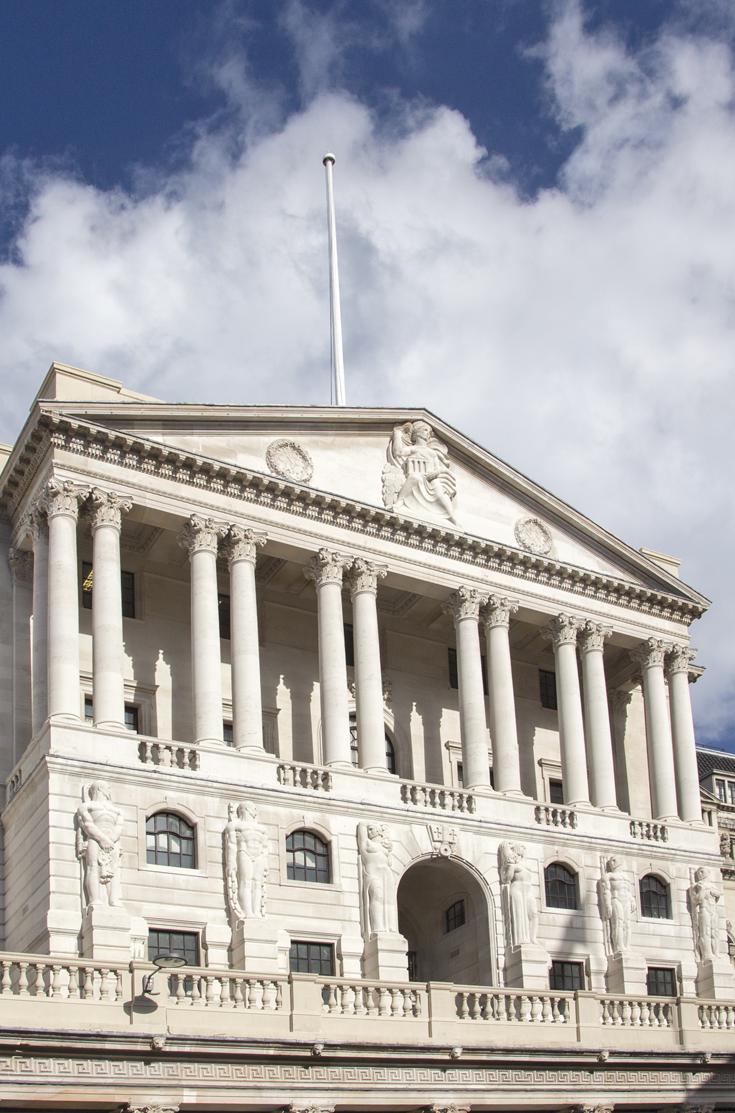Some mortgage interest rates are influenced by the Bank of England’s base rate or take the base rate into account with other indexes. This guide provides an understanding of how the base rate works and which mortgage types are affected.
How Does the Bank of England Rate Impact Your Mortgage?

What is the Bank of England base rate?
The Bank of England is the world’s eighth oldest bank and the central bank of the United Kingdom. It decides the base rate of interest, which affects public spending as a way to control the UK’s rate of inflation and try to keep it at the target of 2%. When the base rate is adjusted it affects the Great British Pound relative to other currencies, savings account interest, pensions and mortgage interest rates.
How does the base rate affect mortgages?
The Bank of England can influence public spending by changing the base rate because they are part of the lending chain. The Bank of England pays UK banks using the base rate of interest. If the base rate decreases, the rate of interest that banks and building societies offer the public will also decrease within financial products. If the interest rate increases, the rates offered to the wider public increase.
This affects savings accounts and mortgages in the opposite way. By reducing the base rate, the incentive for the public to keep money within savings account is reduced, and at the same time it encourages people to borrow from banks because they will not be required to pay as much interest as before.
On the other hand, if the base rate increases, the interest rate of savings accounts is increased and the public is incentivised to keep their money in these accounts, earning them more money. Simultaneously, they are less incentivised to borrow through loans and mortgages because the interest they have to pay on the loan amount is higher.
In a nutshell, the base rate affects the interest you have to pay on some mortgage types.
How is the base rate set?
The Monetary Policy Committee come together eight times each year to discuss if the base rate needs to be changed. It is rare for the base rate to change each time they meet.
They will only make changes if public spending is too low or too high, causing the 2% inflation target to be missed. For example, if spending is too high the base rate will be increased to reduce public spending – and vice versa.
Which mortgages get affected?
Standard variable rate mortgages, also known as SVR mortgages, are a type of mortgage where the interest rate changes over time based on many factors. One factor that heavily influences the interest rates of SVR mortgages is the base rate.
A discount mortgage is a mortgage that is offered with a lower interest rate below the same lender’s SVR mortgages for a fixed period. After this period ends, the discount mortgage will usually transfer to an SVR mortgage where the interest rate is influenced by many factors, including the base rate.
A tracker mortgage is a type of mortgage where the interest rate tracks the base rate from the Bank of England. However, the interest rate is not identical to the base rate as the lender applies an additional fixed-rate, usually around 1% but subject to change.
For example, if the base rate is 0.1% and the lender’s fixed rate on top of this is 1%, then the tracker mortgage interest will be 1.1%. If the base rate increases to 0.5%, the interest rate would then increase to 1.5%. The base rate can change up to eight times each year.
A fixed-rate mortgage is a type of mortgage with a fixed interest rate and is not based on the base rate. However, the fixed period ends after an initial period and will transfer to another mortgage type, potentially an SVR mortgage. Even though a fixed-rate mortgage is not tied to the base rate, it may eventually be tied to it after so many years, unless the homeowner remortgage.

How will I know about any changes?
You will be aware of any changes to the Bank of England’s base rate if you keep an eye on the national news. Most UK news broadcasters and newspapers will report any potential changes to the base rate and changes as they happen.
Your mortgage lender will usually inform you if the base rate has changed at it will affect your monthly mortgage repayments. Or you might only notice the change when you next see your monthly mortgage payment taken from your account.
Will my savings be affected?
When the base rate changes it also influences the interest rates that banks and building societies offer within savings accounts, such as easy access savers, ISAs, and fixed-term bonds. Lenders adjust the rate of interest you are paid in these accounts relevant to the base rate.
Your savings will be affected in the opposite way to how base rate changes affect mortgage interest rates. If the base rate increases, causing mortgage interest to increase, then it simultaneously causes savings interest rates to increase. Whereas the latter is a negative for borrowers, it is a positive outcome for savers. Of course, the opposite is also true.
For further information on how the base rate can affect mortgages, speak with a professional mortgage adviser at Moneysprite. Our team are on hand to explain how it all works and your most appropriate options.
Make an Appointment
Send a request and we’ll schedule a meeting
